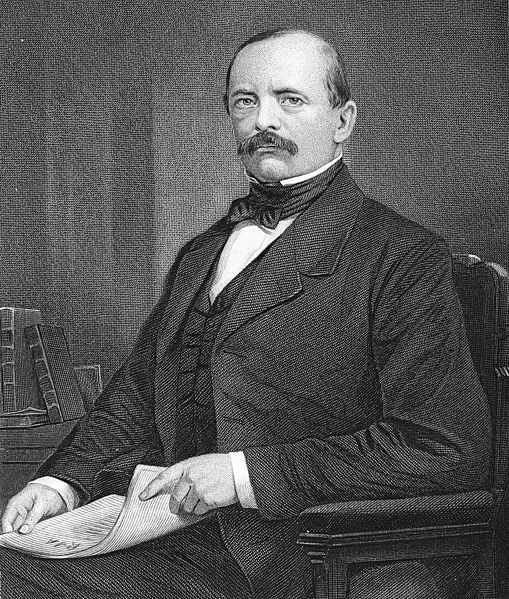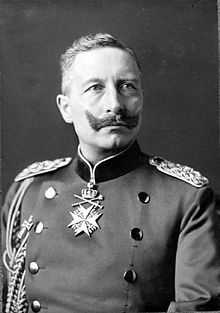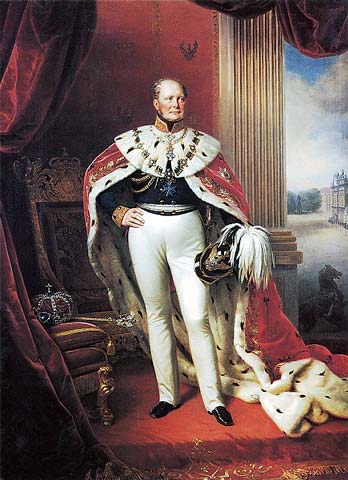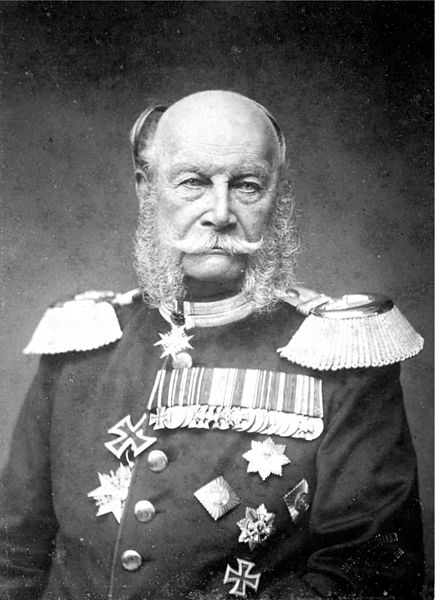“In certain respects we shall seek in vain for any resemblance between Wilhelm II and his father, grandfather, and great-grandfather…”
In these excerpts taken from the book, “The Kaiser Vs. Bismarck: Suppressed Letters by the Kaiser and New Chapters From the Autobiography of the Iron Chancellor,” Otto von Bismarck, an adept statesman who helped to unify the German States into a German empire, makes judgements on Kaiser Wilhelm II’s personality compared to other men in his ruling family.
Bismarck began his historically significant service for the Prussian leadership beginning with Kaiser Wilhelm I from 1862 to 1888 when Wilhelm I passed away (Kaiser Wilhelm I had succeeded Kaiser Frederick William IV). Bismarck then worked with less harmony for Wilhelm I’s successors Frederick III and then Wilhelm II until forced out by the latter in 1890:
Kaiser Wilhelm II
As regards his natural endowment with the characteristics of his forbears, the Kaiser has inherited a certain diversity of talents. He has the love of splendor, the leaning toward court ceremonial, enhanced, on solemn occasions, by costume, of our first kings, combined with a lively susceptibility to adroit approbation. The autocratic temper of the age of Friedrich I has been essentially modified by the lapse of time; but if it had lain within the legal possibilities of the present period, I believe I should not have been spared the fate of Count Eberhard Danckelmann as the conclusion of my political career. Considering the brief duration of life on which I can count in my old age, I should not have tried to evade a dramatic conclusion of my political career, and I would have endured even this irony of fate with cheerful submissiveness to the will of God. Even in the most serious situations in life I have never lost my sense of humor.
The Kaiser displayed inherited sympathies sim-ilar to those of Friedrich Wilhelm I, first of all in the superficiality of his predilection for a “tall fellow.” If the Kaiser’s aides-de-camp were passed under the measure you would find that they were almost all officers of unusual stature, six feet or more in height. It once happened that a tall, unknown officer announced himself at the court residence in the Marble Palace, demanding access to His Majesty, and on being questioned declared that he was appointed aide-de-camp a statement which at first, after further inquiry, was accepted in good faith by His Majesty. The new aide towered above his comrades, but it was not without difficulty that he convinced them of his title to the post at the time of his first appearance in the palace.
The inclination of Friedrich Wilhelm I and Friedrich II toward the autocratic control of governmental affairs, and their faith in the justification of hoc volo, sic jubeo are still im- pressed upon the inheritance of the race. But these sovereigns governed as autocrats, as was the tendency of their age, without considering whether the way in which they governed gained applause for them or otherwise. It is scarcely [I] remember that in 1859, at the time of my departure for Petersburg, I received the ungracious answer to my criticism of the incapacity of the Ministers of the Regent, as a body, “Perhaps you take me for a blockhead!” To which I replied that even a Prussian Landrath at the present day would administer its district neither willingly nor well without a useful district secretary, but that the monarchy had long ago grown beyond the possibility of Cabinet government. Even Frederick the Great had avoided selecting incapable Ministers for his tools…
…to discover whether the contemporaries of Friedrich Wilhelm I gave him their approbation, as did posterity, because in his violent intervention he was free from any regard for the opinion of others, as his father had been. Today the judgment of history has decided that the supreme law of his being was solus publica, not approbation. Frederick the Great did not propagate his race; but his position in our early history must have worked upon each of his successors as a challenge to resemble him. He had two peculiar gifts, each of which enhanced the other: he had the qualifications of a commander-in-chief and a homely bourgeois understanding of the interests of his subjects. Without the first he would not have been in a position to make lasting use of the second, and without the second his military success would not have won him the recognition of pos- terity in such a degree as has been the case although one may say of the European nations in general that that king is the most truly national and the most beloved who has won the bloodiest laurels for his country; sometimes even when he has lost them again through his own neglect. Charles XII obstinately led his Sweden toward the ruin of her powerful position, yet one finds his portrait in the houses of the Swedish peasants, as a symbol of Sweden’s glory, more frequently than that of Gustavus Adolphus. A lover of peace, a benefactor to his people, and a civilizing agent does not as a rule influence the Christian nations of Europe so deeply and so inspiringly as one who is ready to make victorious use of the blood and treasure of his subjects on the battle- field. Louis XIV and Napoleon, whose wars ruined the nation and in the end had little result, have remained the pride of the French, and the more homely services of other monarchs and governments remain thrust into the background. If I picture to myself the history of the European peoples, I find no instance in which honorable and self-sacrificing care for the peaceful prosperity of the nations has had a stronger power of attraction for the sympathies of the people than martial glory, victorious battles, and the conquest of even rebellious territories.
In contrast to his father, Friedrich II, under the influence of the changing period, and his intercourse with foreign scholars, felt a need of approba- tion which early betrayed itself in little things. In his correspondence with Count Seckendorff he sought to impress this ancient sinner by his sexual excesses and the maladies following thereupon, and his aggressive onslaught upon Silesia directly after his accession to the throne he himself de- scribed as the result of his longing for fame. He dispatched poems from the battlefield with the appended remark, “Pas trop mal pour la veille d’une grande bataille” (“Not so bad for the eve of a great battle”). But this longing for applause, this love of approbation, is in a sovereign a power- ful and sometimes a profitable motive; when it is lacking the monarch is more than usually prone to lapse into epicurean inactivity. Un petit roi d’Yvetot, se levant tard, se coucnant tot, dormant fort bien sans gloire, does not conduce to the success of his country.
Would the world have lived to behold the “great” Frederick, or the heroic pledge of Wilhelm I if neither of these monarchs had felt the need of approbation? Ambition in itself is a mortgage which must be deducted from the capacity for work of the man who is incumbered by it, in order to arrive at the net profit which remains as the available sum of his talents. In the case of Frederick the Great genius and spirit were so lofty that they could not be depreciated by any excess of self-esteem, and his extravagant self-confidence, as in the case of Colin 1 and Kunersdorf, 2 the violence used toward the su- preme court of judicature in Arnold’s 3 trial, and the ill usage of Trenck, may all be swallowed without prejudicing the general opinion of this monarch. In Wilhelm I the consciousness that he was a Prussian officer and a Prussian king was extremely active, but the noble qualities of his heart, the trustworthiness and uprightness of his character, were great enough to bear the burden, the more so as his love of approbation was free from excessive self-esteem; on the contrary, his eminent modesty was as great as his sense of duty and his valor. The element which atoned for all the severities of character and behavior of our earlier kings lay in their hearty and honorable good will toward their subjects and servants, and in their loyalty to both.
Frederick the Great’s custom of interfering in the departments of his Ministers and his magistracy and in the circumstances of his subjects’ lives some- times hovered before His Majesty as an example. The inclination to make marginal notes in Frederick the Great’s style, of a critical or peremptory nature, was during my administration so active that it resulted in official inconvenience, because the drastic contents and expression of these notes made it necessary to keep the annotated documents in the strictest secrecy. Representations which I made to His Majesty met with a far from gracious reception; meanwhile the result was that the marginal notes were no longer written on the edge of indispensable documents, but pasted to them. The less complicated Constitution and the smaller area of Prussia enabled Frederick the Great to obtain an easier survey of the general situation of the state, at home and abroad, so that for a monarch who had his experience of business, his inclination for solid work, and his clear insight, the practice of writing brief marginal instructions for the benefit of the Cabinet offered fewer difficulties than under modern conditions. The patience with which he informed himself before arriving at final decisions in legal or practical affairs, and listened to the opinion of competent and expert men of business, gave his marginal notes their business-like authority.
There are two directions in which Kaiser Wilhelm II shares in the inheritance of Friedrich Wilhelm II. One is the powerful sexual development, the other a certain susceptibility to mystical influences. As to the manner in which the Kaiser assures himself of the will of God, to whose service he devotes his activities, we can scarcely cite a classical witness. The intimations in the imaginative essay, “King and Minister: A Midnight Coversation,” concerning a “Book of Vows, “and the miniatures of his three great predecessors, are by no means clear.
I find no similarity of appearance between Friedrich Wilhelm III and Wilhelm II. The former was shy and reserved, and had no inclination for exhibiting himself, nor did he strive after popularity. I remember at a review in Stargard, at the beginning of his thirtieth year, in connection with the ovations by which his ease in the midst of his Pomeranian subjects was disturbed, that at the moment when “Heil Dir im Siegerkranz” mingled with cries of “Hurrah,” was being sung into his face at short range, he flew into a rage whose loud and energetic expression at once silenced the singers. Wilhelm I was not without his share of this paternal inheritance of self-conscious diffidence, and was painfully affected when the homage paid him overstepped the limits of good taste. Flattery a brule pour point irritated him greatly; his reception of any expression of sympathetic loyalty was chilled for the time being by the impression of exaggeration or aggressiveness.
In common with Friedrich Wilhelm IV, the present Kaiser has the gift of eloquence and the need of employing it more frequently than is desirable. His words flow readily; but in the choice of them his great-uncle was more discreet and perhaps more laborious and scientific. In the case of the great-nephew the presence of a short- hand writer is not always desirable; but it was very seldom that a grammatical criticism could be brought against Friedrich Wilhelm’s speeches. These latter were the eloquent and sometimes po- etical expression of ideas which at that time would have been capable of stimulating men to action, had the words been followed by deeds to cor- respond. I very well remember the enthusiasm aroused by the Coronation Speech and the King’s utterances upon other public occasions. If they had been followed by energetic resolutions of the same emphatic character, they might at that time have produced a powerful effect, all the more as people’s feelings were not yet blunted in respect of political emotions. In the years 1841 and 1842 more was to be achieved with fewer means than in 1849. We can form an impartial judgment of those matters now that the then desirable object has been attained, and the need of 1840 is no longer present in the national mind; on the con- trary, Le mieux est Vennemi du bien is one of the soundest of proverbs, against which the Germans are theoretically more inclined to trespass than other nations. Wilhelm II resembled Friedrich Wilhelm IV in this, that the foundation of their policy was rooted in the conception that the King, and he alone, is more closely acquainted with the will of God than other men, governs in accordance with the same, and therefore confidently demands obedience, without discussing his aim with his subjects or announcing it to them. Friedrich Wilhelm IV had no doubt of his specially privileged position in respect of the Deity; his honest belief corresponds with the picture of the high priest of the Jews, who alone stepped behind the curtain.
In certain respects we shall seek in vain for any resemblance between Wilhelm II and his father, grandfather, and great-grandfather; peculiarities which were the principal features of the characters of Friedrich Wilhelm III, Wilhelm I, and Friedrich III were not to the fore in the young sovereign. A certain timid distrust of their own capacity for work had, through the four generations, made way for a certain degree of assured self-confidence, such as we have not seen upon the throne since the time of Frederick the Great; but only, I think, in the person of the reigning sovereign. His brother, Prince Henry of Prussia, seems to possess the same distrust of his own powers and the same secret diffidence as are found, on closer acquaintance, at the bottom of the characters of Kaisers Friedrich and Wilhelm I, despite all their consciousness of their Olympian rank. In the latter his profound and pious trust in God was needed as surety, in the face of his unassuming and humble conception, before man and God, of his own personality, for the steadfastness of those resolutions which he made manifest in the time of conflict. Both rulers atoned by their goodness of heart and their honest love of the truth for their occasional deviations from the current estimation of the practical influence of kingly birth and anointing.
If I seek to paint a portrait of the present Kaiser after the conclusion of my relations with his service, I find in him the characteristics of his predecessors incarnated in a manner which would for me possess a strong attractive power, and result in my attachment to his person, if they were animated by the principle of reciprocity between monarch and subject, between master and servant. The Germanic feudal law gives the vassal few pre-tensions save to the property of the subject, except that the fealty between him and his feudal lord is reciprocal, and the infraction of this fealty by either party is reckoned to be felony. Wilhelm I, his son, and his predecessors possessed the corresponding sentiment in a high degree; and this is the essential basis of the attachment of the Prussian people to their monarchs, which may be explained psychologically, for the tendency to bestow a one-sided affection has no existence as an enduring motive in the human soul. In the presence of Kaiser Wilhelm II, I could not get away from the impression of a one-sided affection; the feeling which is the firmest foundation of the constitution of the Prussian army, the feeling that the soldier will never leave the officer in the lurch, but also that the officer will never leave the soldier in the lurch, a sentiment to which Wilhelm I conformed in respect of his servants almost to exaggeration, cannot so far be recognized as entering, in any adequate degree, into the mentality of the young sovereign; his pretension to absolute sacrifice, confidence, and unshakable fealty has increased; and the inclination to guarantee a return of confidence and security on his own part has so far failed to make its appearance. The ease with which he dismisses trusted servants, even those whom he has hitherto treated as personal friends, without explanation of his motive, does not promote, but weakens, the spirit of confidence as it has prevailed for generations in the service of the kings of Prussia.
With the transition from the Hohenzollern spirit to the Coburg-English conception an imponderable factor was lost which will be difficult to restore. Wilhelm I protected and rewarded his servants, even when they were unfortunate or unskillful, possibly more than was profitable, and in consequence of this he had servants who were more attached to him than was profitable to themselves. In particular his warm-hearted good will toward others was unchangeable, if his gratitude for services performed came into play. He was always far from regarding his own will as the sole rule of conduct, nor could he contemplate the wounding of other people’s feelings with indifference. His manner toward subordinates was always that of a royal and benevolent master, and alleviated the ill humor arising in the course of official business. Ill-natured gossip and calumny, when they came to his ears, could obtain no hold upon his noble and upright nature, and place hunters whose only source of profit lay in the shamelessness of their flattery had no prospect of success with Wilhelm I. To backstairs influences and accusations against his servants he was insensible, even if they proceeded from people holding high positions about his person, and if he did take the matter imparted to him into consideration, this was done in open conversation with the person behind whose back it was meant to take effect. If his opinion differed from mine he expressed himself openly as differing from me, discussing the matter with me, and if I did not succeed in winning him over to my views I gave in when it was possible; if it was not possible I postponed the affair or let it drop for good. My independence as a po- litical leader has been honestly overestimated by my friends, and for their own purposes by my adversaries, because I surrendered all hope of fulfilling desires to which the King had as a matter of conviction offered lasting resistance, without continuing to advocate them until they resulted in a dispute. What was attainable I took on account, and on my side it only came to a strike in cases where my personal sense of honor was involved, as in the affair of the Reichsglocke, 1 by the Kaiserin, or in the Usedom 2 affair, by Masonic influences; I have never been either a courtier or a Mason.
The Kaiser endeavors, by making concessions to his enemies, to make the support of his friends unnecessary. His grandfather, at the time of his accession to the Regency, endeavored to insure the general content of his subjects, without losing their obedience and thereby endangering the security of the state; but after four years’ experience he recognized the errors of his advisers and of his wife, who assumed that the opponents of the monarchy would by liberal concessions be transformed into its friends and supporters. In 1862 he was inclined to abdicate rather than surrender further to parliamentary Liberalism, and accepted battle, supported by the latent but decisively stronger loyal elements.
The Kaiser, with his Christian, but not always (in the worldly sense) successful tendency to conciliation, began with his worst enemy, Social Democracy. This first mistake, which was embodied in the management of the strike of 1889, led to increased pretensions on the part of the Socialists and fresh ill humor on the part of the monarch, as soon as it became evident that under the new government, just as under the old, the monarch could not, with the best will in the world, change the nature of things and of the human race. The Kaiser was without experience in the sphere of human desires and human covetousness; but that he had lost his early confidence in the judgment and experience of others was a result of intrigues by which he was confirmed in his underestimation of the difficulty of governing, not only by officious advisers, such as Hinzpeter, Berlepsch, Heyden, Douglas and other impudent flatterers, but also by place-hunting generals and aides, and colleagues to whom I was referred for support, such as Boet- ticher, who as Minister had no other function than to support me, and even by individual members of my Council, who immediately and willingly went over in secret to President von Berlepsch if the Kaiser questioned them behind the backs of their superiors. Perhaps he will suffer the same disil- lusion in respect of Social Democracy as his grand- father suffered in 1862 in respect of the progressives. This policy of making advances to, not to say running after, the enemy, has been adopted by the Center, by Windthorst only to have spoken to whom was seized upon by the Kaiser as one of the external causes of his breach with me and whose official honors after my dismissal were increased to apotheosis after his death. A curious Prussian saint! It is to be feared that even these favored props of the monarchy will give way in the mo- ment of need. At all events, the complete satis- faction of the confederates, which the Prussian monarchy and the Protestant Empire might find in the Center and the Society of Jesus, will prove to be just as unattainable as that of the Socialists, and in the event of danger and difficulty we shall see results not unlike those which followed the downfall of the Teutonic Order in Prussia, in con- nection with the mercenary soldiers, whom the Order was unable to pay. The Kaiser’s inclination to employ antimonarchical and even anti-Prussian elements, such as the Poles, in the service of the Crown, gave His Majesty a temporary means of bringing pressure to bear upon parties and factions which in principle were loyal to the antimonarchical tradition. The threat that if he were not unconditionally obeyed he would turn yet farther to the Left; that he might place the Socialists, the Crypto-Republicans of the Free-thinkers’ Party, and the Ultramontane forces at the helm: in a word, the Acheronta movebo, which was the distinctive trait of this running after irreconcilable opponents, intimidated the established supporters of the monarchy. They feared that “things might become even worse,” and the Kaiser is today, as far as they are concerned, in the po- sition of a ship’s captain whose navigation arouses the apprehensions of the crew and who sits smoking a cigar over the powder barrel.
Even in the case of foreign countries, whether friendly or inimical or doubtful, amiability had been carried to a greater length than is compatible with the conception that we should feel secure by virtue of our own attractive force. There was no one, either in the Foreign Office or at court, who was sufficiently familiar with inter- national psychology justly to calculate the effect of these political proceedings on our side; neither the Kaiser nor Caprivi nor Marschall was qualified to do so by his previous experience, and the political sense of honor of the Kaiser’s advisers was satisfied by the Kaiser’s signature, independ- ently of the consequences to the Empire.
The attempt to win the liking of the French (Meissonier 1 ), in the background of which the idea of a visit to Paris may have been slumbering, and the willingness once more to allow the right of thoroughfare through the boundary wall of the Vosges, had had no other result than that the French became bolder and the Statthalter more anxious. The Kaiser’s announcement in the autumn of 1889 that he intended to pay a second visit to Russia in 1890 an announcement which was personally inconvenient to the Russian mon- arch had disagreeable results. Our attitude toward England and Austria seemed to me equally incorrect. Instead of fostering the idea in these countries that even if the worst came to the worst we should not be lost without them, a system of gratuities was employed, which we found to be extremely costly, and which made us appear to be in need of help, whereas both our helpers needed it more than we did. England, if, owing to her lack of troops, she were threatened by France, or by Russia in India and the East, might find protection from either of these threats in the assistance of Germany. But if on our side more importance were attributed to England’s friendship than England attributed to ours, then England’s over- estimation of herself with reference to us would be confirmed, as also the conviction that we should feel ourselves honored if, without any return services, we were allowed to burn our fingers in achieving England’s aims. Even more certain, in our relations with Austria, was the greater lack of need on our part, and it is not possible to see why, at the meeting in Silesia, we should have had to buy our otherwise secure reliance on reciprocal support by the promise of economic concessions or to confirm our need of such support. The saying that fusion of economic interests that is, the favoring of Austrian at the cost of German interests is a necessary result of our political intimacy, has reached me from Vienna in varying forms, for ten long years, and I have turned aside the underlying expectations without a blunt re- fusal, but also without giving way in the slightest degree, meeting them with friendly courtesy, until they were recognized to be hopeless even in Vienna, and were abandoned. But at Rohnstock 1 the Austrian expectations appear to have been so skillfully thrust into the foreground between the two Kaisers that the natural inclination to be agreeable to one’s guest may have been the origin of the promise on our part which Kaiser Franz Joseph had utiliter accepted. In the following deliberations of the Ministers, moreover, the routine-trained business dexterity of the Austrians would in any case have gained an advantage over our novices and free-traders. It may be that my friend and colleague Kalnoky 1 would not have been a match for my successor in a military sense, but in the sphere of economic diplomacy he was his superior, although not fundamentally an expert…
Source: The Internet Archive. Find more information on the book and the full text here.
Comment |

 Share on Facebook
Share on Facebook
 Tweet
Tweet
 Add My Story
Add My Story










